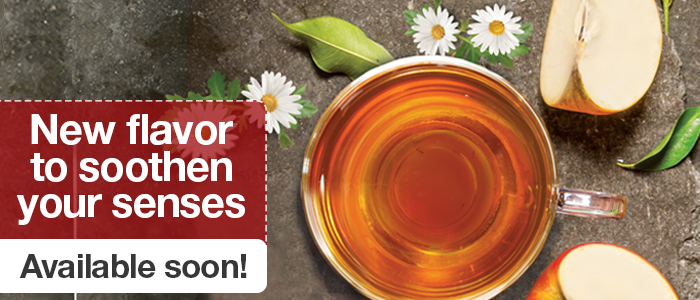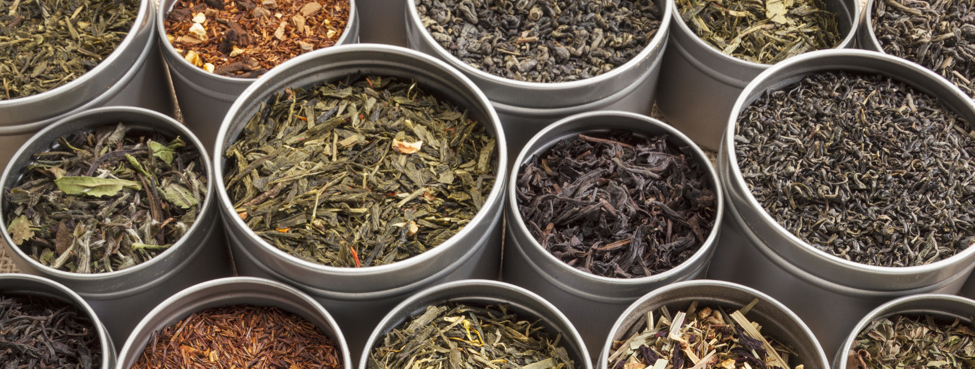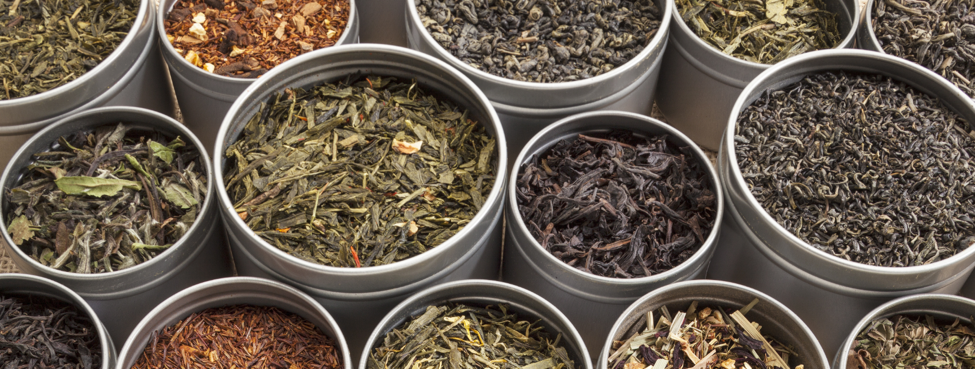By: Susan Bowerman, M.S., R.D., C.S.S.D., C.S.O.W.M., F.A.N.D., Sr. Director, Worldwide Nutrition Education and Training
Rich in ceremony and steeped in tradition, drinking and serving tea is a daily practice for individuals worldwide.

The benefits of drinking tea go beyond the art of preparation and taking in the aroma. Green, black and herbal teas contain phytonutrients, compounds that not only give plants their color, flavor and aroma, but can also benefit human health.
Some tea companies even infuse already good-for-you tea with vitamins and functional herbs. Consider them a different school of functional tea.
From fruit-infused green tea to “energy” and “bedtime” blends, there are dozens of functional teas to choose from. Here are a few time-tested functional teas to keep in your cabinet.

Green and Black Tea
To support antioxidant activity, prepare a cup of green tea. Made from the Camellia sinensis plant, green tea contains four components called catechins, which are part of a family of compounds known as flavonoids.
Want green tea’s nutritional benefits with an energy boost? Choose black tea. It contains up to two to three times as much caffeine as green tea (depending on brew time), with similar health properties.
Black tea’s “functional” compounds may also reduce stroke risk. University of California Los Angeles researchers conducted an evidence-based review of nine studies that involved 195,000 people total, including 4,378 stroke cases. The data showed drinking 3 cups of black tea reduced stroke risk by 21 percent. Researchers speculated EGCG, the tea’s main catechin, was a contributing factor.
Green, black and white teas all contain L-Theanine, which is the reason tea gives you an energy boost without the coffee jitters.
Chamomile
Chamomile promotes relaxation and restful sleep. Chamomile’s sleep-inducing effects have to do with the flavonoid apigenin, which binds to certain receptors in the brain, causing sleepiness.
Chamomile also holds anti-inflammatory properties. Researchers from University Hospitals Case Western Reserve University in Cleveland, Ohio, examined the anti-inflammatory effects of chamomile tea. They found chamomile exhibited activity similar to that of non-steroidal anti-inflammatory drugs (NSAIDs).
Lavender
Just like lavender essential oils promote relaxation and sleep, drinking lavender tea has calming benefits. Inhaling lavender tea’s steam may slow nervous system activity, prompting relaxation, according to University of Maryland Medical Center.
Aromatherapists use lavender to treat headaches, nervous disorders and exhaustion. Other natural health practitioners recommend it in a bath to treat muscle and joint pain. Try a spot of lavender tea before bed and feel your cares melt away.
Peppermint
For an overall digestive soother, drink a steaming cup of peppermint tea. One of the best teas for digestion, peppermint is generally known to soothe stomachaches, cramps and heartburn.
Refreshing peppermint contains menthol, which can break up phlegm and thin mucus. The next time you have a cold, inhale the steam before you drink up.
Ginger
Ginger not only adds zip to baked goods and stir-fries, it also settles your stomach. Ginger contains at least 14 bioactive compounds that yield many health benefits.
Ginger contains a high level of antioxidants, which benefits heart health. It’s also considered an anti-inflammatory herb. Data suggests it moderates pain-sensitivity receptors, which may help ease arthritis stiffness.
Ginger’s most common benefit, however, is to ease stomach woes. Of the many ginger studies, one study found pregnant women who used ginger supplements experienced less vomiting and nausea than the placebo group—without side effects.
Green, black and herbal tea compounds may have beneficial properties, but the ritual of preparing tea also has a place in a healthy lifestyle. Curling up with a warm cup of tea is a calorie- and alcohol-free way to relax at the end of the day and it’s a great way to stay hydrated.




